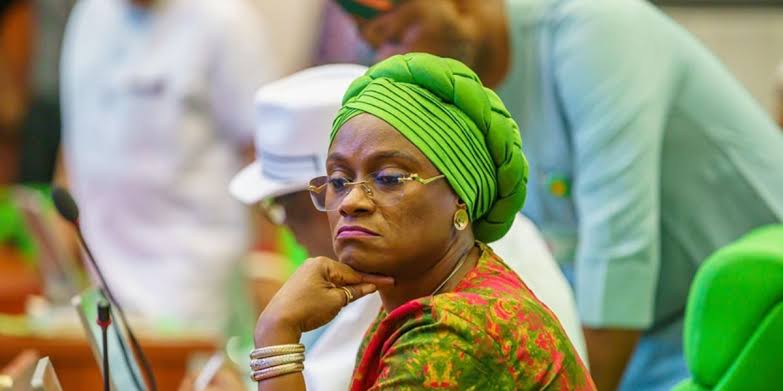The tragic demise of Adewunmi Onanuga, aka “Ijaya,” a popular Nigerian politician and entrepreneur has left a vacuum in the House of Representatives where she served as the Deputy Chief Whip from July 2023 until her death.
News of her death came to public domain on January 15, 2025, leaving every ear that hears it in shock.
This vacuum, however huge, would have to be filled.

We cannot say for sure what the future holds, but one thing is certain, that position must be filled, and it must be done by the books.
Now, let us look at what the constitution says about the replacement of a Deputy Chief Whip of the National Assembly in the event of their death.
The Nigerian Constitution does not provide a detailed, specific procedure for replacing a Deputy Chief Whip of the National Assembly in the event of their death. However, the general framework for the replacement of members of the National Assembly, including positions like Chief Whip and Deputy Chief Whip, can be derived from the provisions of the Constitution and the rules governing the National Assembly’s operations.
Key Points to Consider:
1. Section 60 of the Nigerian Constitution (1999, as amended):
This section gives the National Assembly the authority to regulate its own proceedings. It allows the National Assembly (both the Senate and the House of Representatives) to adopt its own rules for the conduct of business, including the election or replacement of its officers.
2. The Rules of the National Assembly:
The Standing Orders of both the Senate and the House of Representatives would typically provide specific procedures for replacing officers such as the Deputy Chief Whip. The Standing Orders are the internal rules that govern how the National Assembly operates, and they can specify how vacancies in certain positions, including that of the Deputy Chief Whip, are to be filled.
3. Vacancy in the Office of the Deputy Chief Whip:
In the event of a vacancy in the position of Deputy Chief Whip due to death, the National Assembly would likely follow the same procedures as it would for any other officer vacancy. This would typically involve:
– A motion to declare the position vacant.
– Nomination and election of a new Deputy Chief Whip by the members of the relevant chamber (the House of Representatives or the Senate).
Did You Miss? About Late Adewunmi Onanuga, Nigeria’s 10th National Assembly Only Female Principal Officer
4. Political Party Considerations:
The position of Deputy Chief Whip is generally filled by members from the ruling party or coalition in the National Assembly. Therefore, the party leadership may play a role in nominating a replacement, which would then be confirmed through the parliamentary process.
Conclusion
While the Nigerian Constitution does not explicitly outline the procedure for replacing a Deputy Chief Whip after their death, the process is governed by the National Assembly’s internal rules and the political context.
The replacement would typically involve the adoption of a motion declaring the office vacant and the subsequent nomination and election of a new Deputy Chief Whip by the members.
The Standing Orders of the Senate or House of Representatives, as well as the political party structures, would also play a significant role in this process.

